Clobazam
About Clobazam
Clobazam belongs to a class of anxiolytic drugs called benzodiazepines (BZD) primarily used to treat epilepsy (fits), severe anxiety over a short period. Also, Clobazam is used in combination with other medicines to treat schizophrenia (a mental illness). Epilepsy (fits) is a disorder in which there is a sudden, uncontrolled disturbance in the electrical activity of nerve cells in the brain. Anxiety is a mental health disorder associated with fear, worry and excessive nervousness. Schizophrenia is a mental disorder that affects the ability of a person to feel, think and behave clearly.
Clobazam works by increasing the release of GABA (a chemical messenger that acts as a nerve-calming agent) in the brain by acting on GABA receptors. Thereby, Clobazam prevents fits by stabilizing the electrical activity of nerve cells in the brain. Also, Clobazam calms nerve cells and helps in reducing anxiety and induces sleep.
Take Clobazam as prescribed. Your doctor will advise how often you take Clobazam based on your medical condition. Some people may experience restlessness, irritability, drowsiness, constipation, aggressive behavior, tiredness or breathing problems. Most of these side effects of Clobazam do not require medical attention and gradually resolve over time. However, if the side effects persist or worsen, please consult your doctor.
If you are known to be allergic to Clobazam or any other medicines, please tell your doctor. Clobazam is not recommended for children below 6 years of age. Do not take Clobazam if you are pregnant or breastfeeding as it may cause adverse effects in the baby. Clobazam should be used with caution in elderly patients above 65 years as there is an increased risk of adverse reactions such as dizziness, muscle weakness and drowsiness. Avoid taking Clobazam if you have myasthenia gravis (muscle weakness), sleep apnoea (breathing stops and starts repeatedly), breathing or liver problems. Do not take Clobazam with opioids as it may cause breathing problems, drowsiness, coma and even death.
Uses of Clobazam
Medicinal Benefits
Clobazam is an anxiolytic drug (reduces anxiety) that is used to treat epilepsy (fits), severe anxiety over a short period. Clobazam prevents fits by stabilizing the electrical activity of nerve cells in the brain. Also, Clobazam calms nerve cells and helps in reducing anxiety over a short period and induces sleep. Additionally, Clobazam can also be used in combination with other medicines to treat schizophrenia (a mental illness).
Directions for Use
Storage
Side Effects of Clobazam
- Restlessness
- Irritability
- Drowsiness
- Constipation
- Aggressive behaviour
- Tiredness
- Breathing problems
Drug Warnings
Do not take Clobazam if you are known to be allergic to Clobazam. Clobazam is not recommended for children below 6 years of age. Do not take Clobazam if you are pregnant or breastfeeding as it may cause adverse effects in the baby. Clobazam should be used with caution in elderly patients above 65 years as there is an increased risk of adverse reactions such as dizziness, muscle weakness and drowsiness. If you have depression, spinal or cerebellar ataxia (problems in controlling movements), hallucinations, delusions (misbelief), liver or kidney problems, inform your doctor before taking Clobazam. Avoid taking Clobazam if you have myasthenia gravis (muscle weakness), sleep apnoea (breathing stops and starts repeatedly), breathing or liver problems. Do not take Clobazam with opioids as it may cause breathing problems, drowsiness, coma and even death.
Drug Interactions
Drug-Drug Interaction: Clobazam may have interaction with high blood pressure-lowering medicines (nebivolol), pain killers (dihydrocodeine, morphine, codeine), antifungal drug (fluconazole), antipsychotics (pimozide, haloperidol, clozapine, chlorpromazine), sleeping pills (zolpidem), epilepsy or fits related drugs (phenytoin, clonazepam, carbamazepine, valproic acid, levetiracetam, lamotrigine, pregabalin), antidepressants (paroxetine, fluvoxamine, trazodone), antihistamines/antiallergics (diphenhydramine, chlorphenamine, promethazine), anti-anxiety drugs (lorazepam, diazepam, temazepam).
Drug-Food Interaction: Clobazam may interact with alcohol. Therefore, avoid intake of alcohol while taking Clobazam as it may increase side effects such as drowsiness, dizziness or difficulty in concentrating.
Drug-Disease Interaction: Do not take Clobazam if you have myasthenia gravis (muscle weakness), sleep apnoea (breathing stops and starts repeatedly), breathing or liver problems. If you have depression, spinal or cerebellar ataxia (problems in controlling movements), hallucinations, delusions (misbelief), kidney or liver problems, inform your doctor before taking Clobazam.
Drug-Drug Interactions Checker List:
Safety Advice

Alcohol
unsafeAvoid consumption of alcohol with Clobazam as it may increase the risk of drowsiness and other adverse effects.

Pregnancy
unsafeClobazam is a Category C pregnancy drug. It is not recommended for use during pregnancy, especially in the second and third trimesters as it may cause harm to the unborn baby.

Breast Feeding
unsafeAvoid breastfeeding while taking Clobazam as it may be excreted in breast milk and cause adverse effects in the baby.

Driving
unsafeClobazam may cause dizziness, double vision or drowsiness in some people. It is an offence to drive if Clobazam affects you. Therefore, avoid driving if you feel drowsy, dizzy or experience any vision problems after taking Clobazam.

Liver
cautionTake Clobazam with caution, especially if you have a history of Liver diseases/conditions. The dose may be adjusted by your doctor as required.

Kidney
cautionTake Clobazam with caution, especially if you have a history of Kidney diseases/conditions. The dose may be adjusted by your doctor as required.

Children
cautionClobazam is not recommended for children below 6 years. However, Clobazam may be used in children above 6 years in dose and duration as prescribed by a doctor.
Habit Forming
Diet & Lifestyle Advise
- Follow a regular sleep pattern.
- Maintain a low-carbohydrate and high-fat diet which includes seafood, avocado, cheese, coconut oil, eggs, poultry and meat, olive oil, berries, butter, cream, dark chocolate, nuts and seeds as it helps to reduce fits.
- Do regular exercise and maintain a healthy body weight.
- Avoid consumption of alcohol as it may increase drowsiness.
Special Advise
Do not take Clobazam for a prolonged time as it may lead to mental or physical dependence on Clobazam.
Patients Concern
Disease/Condition Glossary
Epilepsy (fits): A neurological disorder in which there is a sudden, uncontrolled disturbance in the electrical activity of nerve cells in the brain causing periods of unusual sensations, behavior, abnormal activity of the brain, and loss of awareness at times. Epilepsy can be treated by using anti-epileptic drugs, a special ketogenic diet, small electrical devices, or surgery.
Anxiety disorder: It is a mental health disorder associated with fear, worry, and excessive nervousness. Schizophrenia is a mental disorder that affects the ability of a person to feel, think and behave clearly.
FAQs
No, you are not recommended to take Clobazam with opioids as co-administration of these medicines may cause breathing problems, drowsiness, coma and even death. However, before using Clobazam with any other medicines, you are advised to contact your doctor so that the dosage may be adjusted accordingly to use safely.
No, you are not recommended to consume alcohol with Clobazam as it may increase the risk of side effects. Also, if you ever had alcohol dependence, avoid taking Clobazam as it may increase the risk of dependence on Clobazam.
No, Clobazam is not recommended for use during pregnancy especially in the second and third trimesters as it may cause adverse effects in the baby such as cleft lip, changes in heart rate, movements, muscle weakness, breathing problems, drowsiness or drop in body temperature. Clobazam may cause withdrawal symptoms such as shaking or nervous excitement in the baby if taken during late pregnancy. Therefore, if you are pregnant or planning for pregnancy, please inform your doctor before taking Clobazam.
No, you are not recommended to stop taking Clobazam without consulting your doctor as it may cause depression, anxiety, confusion, difficulty in sleeping and loss of appetite. Therefore, take Clobazam for as long as your doctor has prescribed it and if you experience any difficulty while taking Clobazam, please consult your doctor so that the dose may be gradually reduced.
Yes, Clobazam may cause mental or physical dependence if used for a prolonged time. Therefore, take Clobazam only in dose and duration as advised by your doctor.
No, Clobazam does not cure epilepsy. Clobazam only helps in controlling seizures (fits). There is no cure for epilepsy but treatment at an early stage can make a huge difference as prolonged or uncontrolled fits may result in brain damage.









